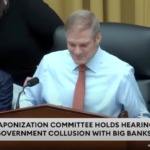Europe has witnessed a surge of unrest among the agricultural community, as farmers across the continent are rising up against policies aimed at achieving Net Zero emissions by 2030. This movement has sparked significant debate and concern, shedding light on the complex intersection of environmental goals and agricultural sustainability. In this blog, we talk about the heart of these protests, exploring the reasons behind them, the countries involved, and the potential implications for food security and the agricultural sector at large.
The Roots of Discontent
Farmers in several European countries, including Denmark, Germany, France, Romania, Poland, Greece, and Portugal, have taken to the streets to voice their opposition to the Net Zero agenda. These policies, which include increased taxes, canceled subsidies, and rigorous government regulations, are seen as a direct threat to the viability of small to midsize farms. The crux of the farmers’ grievances lies in the fear that these regulations will drive them into bankruptcy, endanger their livelihoods, and potentially lead to food shortages.
A Continent United in Protest
The protests have manifested in various forms, from transportation strikes in Germany and France to farmers blocking border crossings and dumping imported goods. These actions highlight the farmers’ desperation and determination to fight against what they perceive as an existential threat to their way of life. The widespread nature of these protests underscores a collective anxiety among farmers across Europe, who feel demonized and marginalized by current environmental policies.
The Media vs. The Reality
While mainstream media outlets like Reuters may attribute the protests to generic grievances over costs and green rules, the farmers and those closely following the situation recognize a deeper issue at play. The heart of the matter is the need to reduce emissions from agriculture to mitigate further global warming. Agriculture accounts for approximately 33% of global emissions, making it imperative that the sector adapts to more sustainable practices. However, the manner in which these changes are being imposed is causing significant distress among the farming community. Farmers argue that the regulations make it impossible for them to continue their operations, threatening food supply control and the overall quality of food.
The European Common Agricultural Policy
The European Common Agricultural Policy, with its substantial subsidy of 55 billion euros per year, has traditionally ensured food security across the continent. However, the new green rules adopted by the European Parliament apply continent-wide and may not be feasible for all farmers. This has led to a growing dissatisfaction among farmers who are also concerned about unfair competition from imports and the waving of quotas and duties on agricultural produce.
The Decline of the European Farm
The decline in the number of farms within the EU over the past 18 years is a testament to the challenges posed by new regulations aimed at making the industry climate neutral by 2050. These regulations require farmers to reduce farm size, cut fertilizer use, and increase organic production. As farmers grapple with falling sale prices and rising costs, the fear of bankruptcy looms large. This, in turn, opens the door for large transnational corporations like Monsanto to buy up farms, increasing their control over food production and raising concerns about the loss of control over livelihoods among farmers.


















